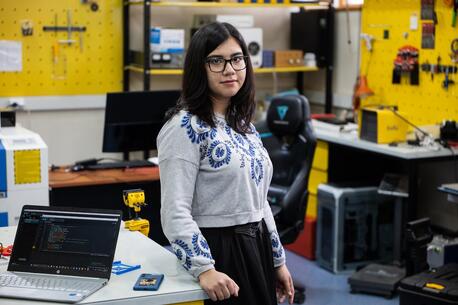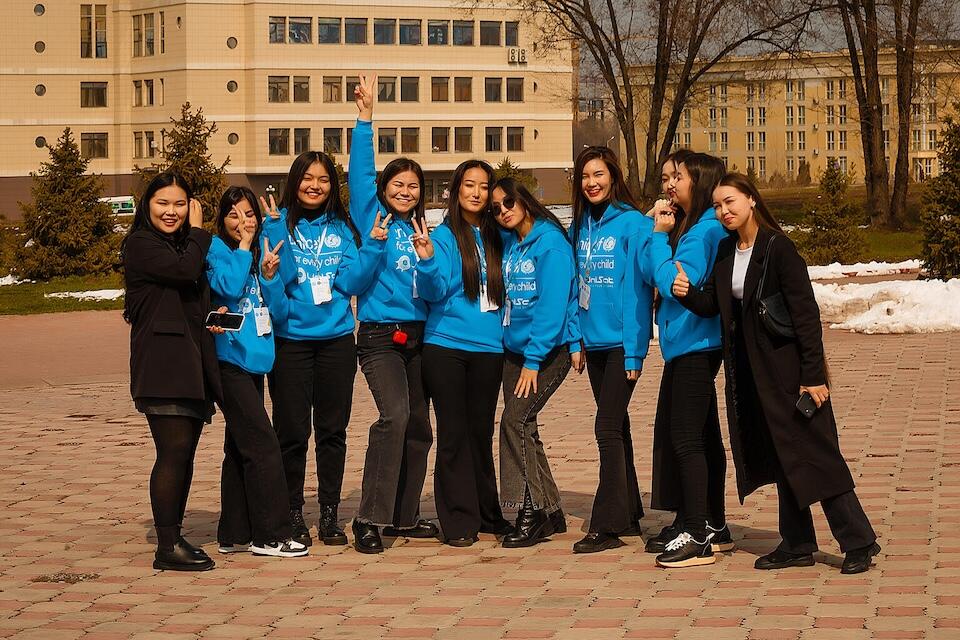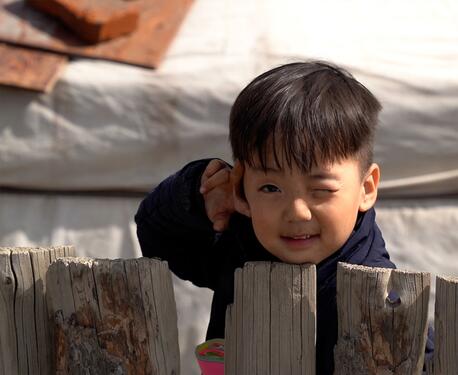
UNICEF Equips Girls to Fight Air Pollution in Central Asia
A UNICEF-supported program provides girls with STEM skills and knowledge they can use to monitor and analyze air quality in their communities.
Damage caused by air pollution starts in the womb and can last a lifetime
Air pollution is a children's rights issue. Every year, children around the world are dying or suffering long-term health consequences from breathing polluted ambient and indoor air.
Babies and young children are uniquely vulnerable to the effects of polluted air. They inhale more air per pound of body weight and absorb more pollutants than adults. In 2021, the deaths of more than 700,000 children under age 5 were linked to air pollution.
We're burning everything and not caring about the smog. — Zulfia, a student in Tashkent, Uzbekistan
Polluted air is the leading environmental health risk for children in Europe and Central Asia — in 2021, across 23 countries and territories in the region, an estimated 6,441 children and teenagers died from causes attributable to air pollution. The vast majority – 85 percent – died in their first year of life, according to a recently released UNICEF policy brief.
Zulfia, a student in Tashkent, Uzbekistan, says that breathing bad air made her start "coughing like every 15 minutes. We're burning everything and not caring about the smog." Air quality in Tashkent is among the most polluted on Earth.
Zulfia is one of many girls from Kazakhstan, Kyrgyzstan and Uzbekistan who have participated in UniSat, a project launched by UNICEF that helps girls hone their STEM skills, using nanosatellites to monitor and analyze air pollution in those countries.
Watch the video:
Closing the gender gap in areas of computer literacy, technical education and technical careers
The UniSat program covers space technologies, radio electronics, programming, technologies for receiving and processing Earth images from space, and satellite meteorology.
"UniSat is basically the boot camp where you can shape your technical, your theoretical and other skills in technologies in STEM, in aerospace," says Zulfia, a graduate of the training program at the National University of Uzbekistan. "We have studied all the concepts, from 3D modeling to electrical circuits and programming on Arduino."
A class of small spacecraft, nanosatellites are equipped with several cameras that take stunning high-resolution images of the Earth and space, while sensors collect data on radiation, pressure, gravity, light and gas composition. Afterwards, large amounts of data, video and images are sent back to the Earth for analysis.

The path to a healthier planet
The project is part of UNICEF's ongoing efforts to equip young people with the skills and knowledge they need to help build a greener, more sustainable future.
UniSat is implemented with the support of the UAE-based civil society organization Dubai Care, Clé de Peau Beauté brand and philanthropist Nazanin Alakija, and is part of the Gender Equality Global Innovation Portfolio at UNICEF.
UNICEF works with partners to address climate and environmental impacts on children, and to create a more equitable world for every child. Please donate today.
HOW TO HELP
There are many ways to make a difference
War, famine, poverty, natural disasters — threats to the world's children keep coming. But UNICEF won't stop working to keep children healthy and safe.
UNICEF works in over 190 countries and territories — more places than any other children's organization. UNICEF has the world's largest humanitarian warehouse and, when disaster strikes, can get supplies almost anywhere within 72 hours. Constantly innovating, always advocating for a better world for children, UNICEF works to ensure that every child can grow up healthy, educated, protected and respected.
Would you like to help give all children the opportunity to reach their full potential? There are many ways to get involved.





